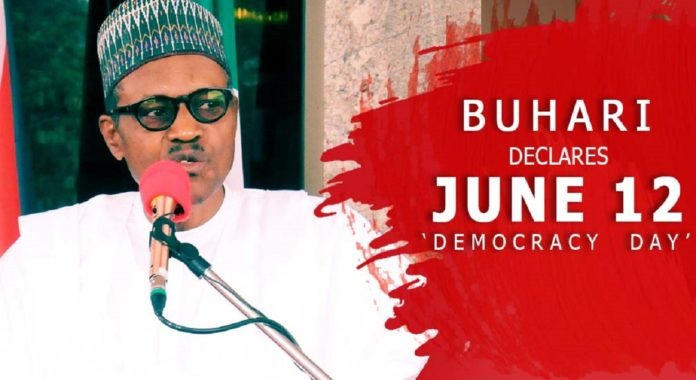Many a time, the custodians of history have enumerated the manner democracy was buried alive in Nigeria on June 12, 1993. The international community, the Nigerian political elite and the masses, among other principal actors who witnessed the annulment of June 12, 1993 presidential election regarded the incident as a daylight robbery of Nigeria’s democratic institution. The spirit of national inspiration submerged ethnic chauvinism and religious bigotry, which have been the virulent banes against national coexistence since the country attained political independence.
No single individual has ever justified the annulment of June 12, 1993 elections. It was described as the freest and fairest general election in Nigerian electoral process since independence. General Ibrahim Babangida, the Head of states who mapped out the electoral process and its cancellation was reported to have regretted his action almost 17 years after the abortive transition. The remorse seems like the prescription of a medicinal herb for a corpse. The remorseful act can’t remediate the monumental harm his action had unleashed on Nigerian democratic institution.
The recognition of June 12 as Nigeria’s Democracy Day by the President Muhammadu Buhari – led administration is highly commendable. June 12 is worthy of national recognition and celebration. But the commemoration has no value if the contemporary struggles are not actualized – national integration, good governance and free and fair elections in the country. The greatest honour in remembrance of Abiola, the celebrated heroes and the unsung compatriots who defended Nigerian democracy is to keep their hope alive; the hope of banishing hunger, poverty, tyranny and socio-economic degradation in the country. June 12 should be a reflection to achieving the contemporary demands for good governance, national prosperity and collective aspiration.
Binzak Azeez writes from the faculty of Law, Obafemi Awolowo University, Ile Ife







